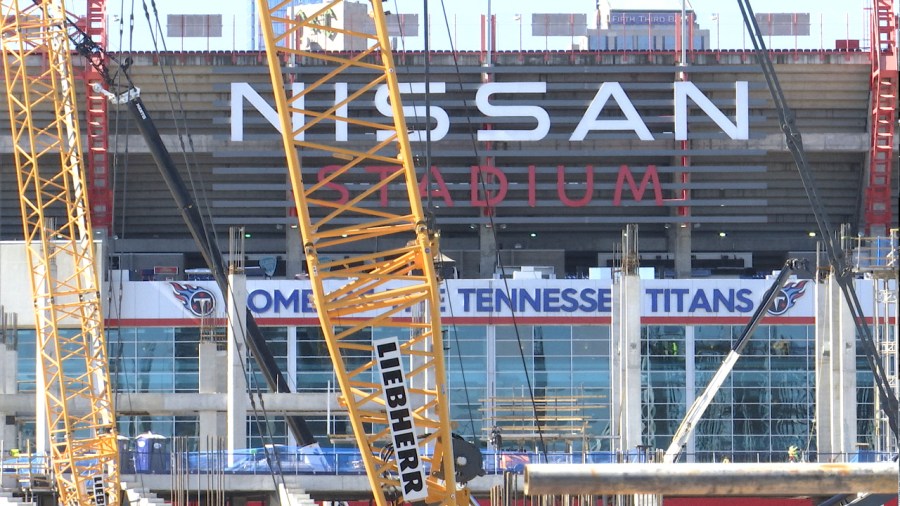NASHVILLE, Tenn. (WKRN) — Zero-waste goals for the new Nissan Stadium were outlined at Metro’s Sports Authority finance committee meeting Thursday.
In addition to construction updates on the new Nissan stadium, which is scheduled to open in 2027, committee members heard about sustainability efforts underway at the site. One of those efforts included the performance of a waste audit at the current Nissan stadium to understand where most of the waste comes from.
Shannon Myers, both senior vice president and chief financial officer for the Tennessee Titans, serves as the executive sponsor for the Titans’ Sustainability Committee. Myers called the goal “audacious” at Thursday’s Sports Authority meeting.
“In the new stadium, we have an audacious goal of being zero-waste. We’re very excited about that,” Myers said. “It’s audacious because we bring in over a million patrons a year in our current Nissan stadium and we’re going to bring in more than that in our new stadium. It’s audacious, but we want to put that out there.”
Overall, 209,000 pounds of Nissan stadium’s waste were diverted from landfills in 2024; that waste was diverted through efforts by janitorial service employees, who sorted through bins after games and other major events. Of that total, about 78,000 pounds of waste was made up of cans, cups and bottles.
Myers touched on other sustainability and waste reduction efforts at the current Nissan stadium, highlighting fans’ use of WeGo public transit to get to events as well as meal donation and food composting efforts.
“It’s just amazing to see what this new stadium opportunity has done to ignite the passion of folks within the Titans organization to make this generational change and impact on our employees, our fans and the city,” project executive Kellen DeCoursey said.
🏈 TITAN UP all season long with the latest news and notes on the Tennessee Titans
DeCoursey added the new Nissan Stadium is aiming for LEED Gold certification, meaning the stadium would be recognized by the U.S. Green Building Council for sustainability efforts. One way the architects of the new Nissan Stadium have planned to achieve LEED Gold certification is through the development of an onsite rainwater conservation and reuse system.

Plans showed that rainwater would be collected from the roof and drains around the site before being stored in 400,000 gallon facility tanks. A quarter of the new Nissan Stadium’s toilets will be flushed with the collected rainwater; the water will also go into HVAC cooling towers and irrigation. The system would save a projected 10 million gallons of water each year, DeCoursey said.




